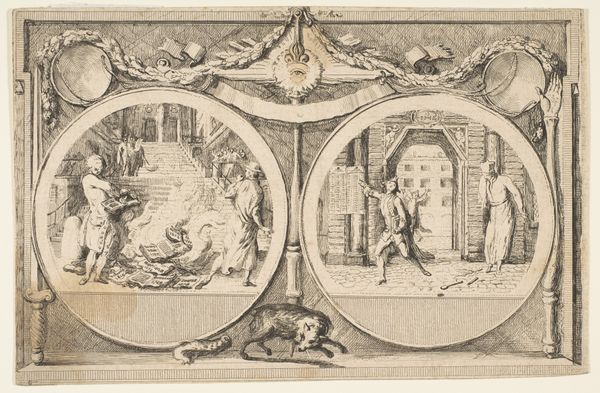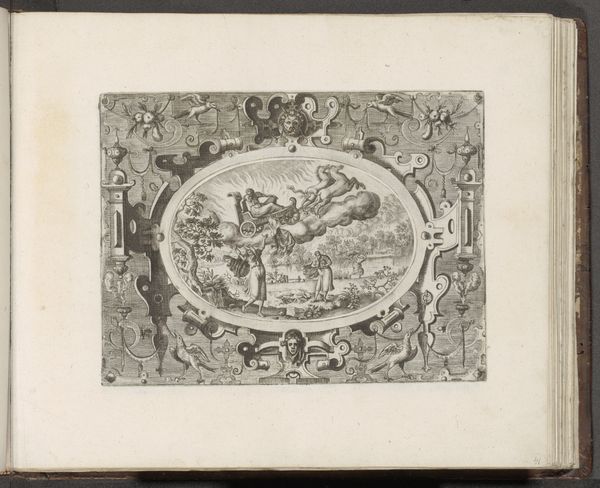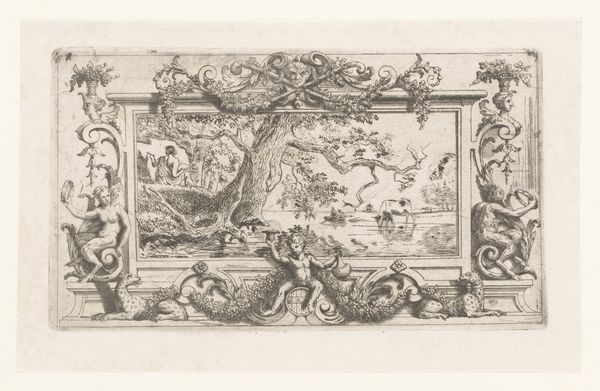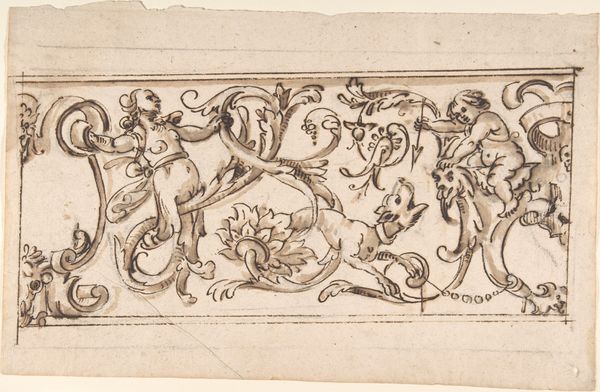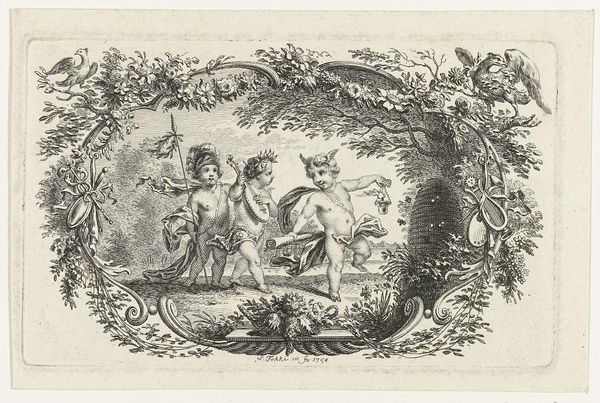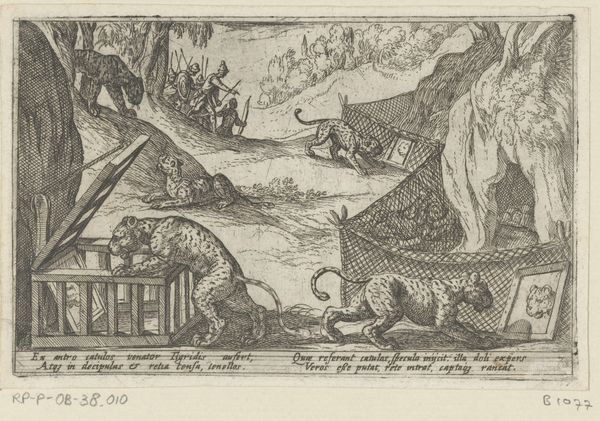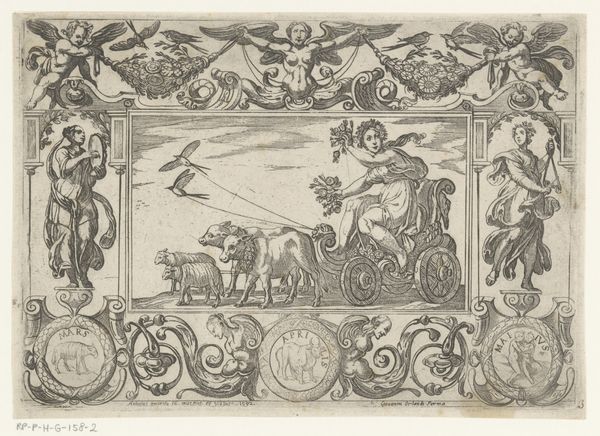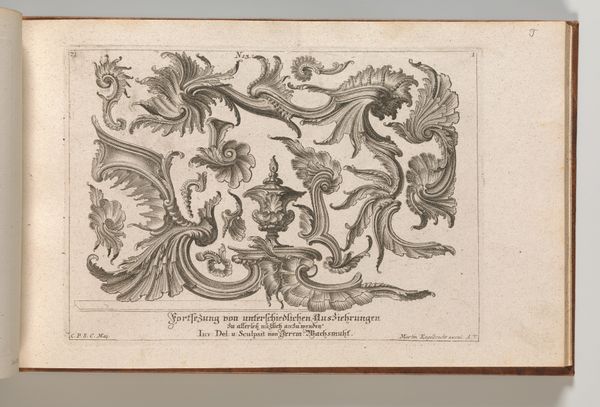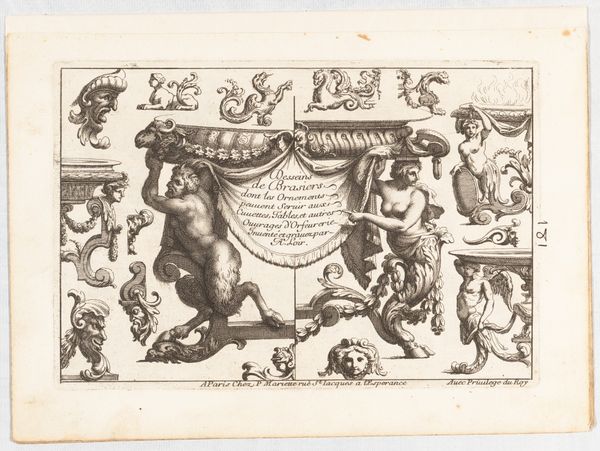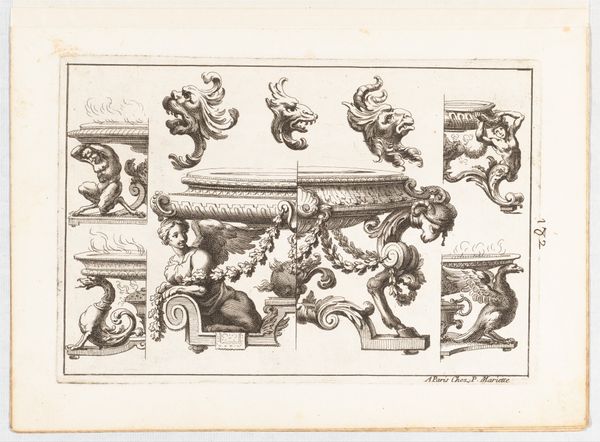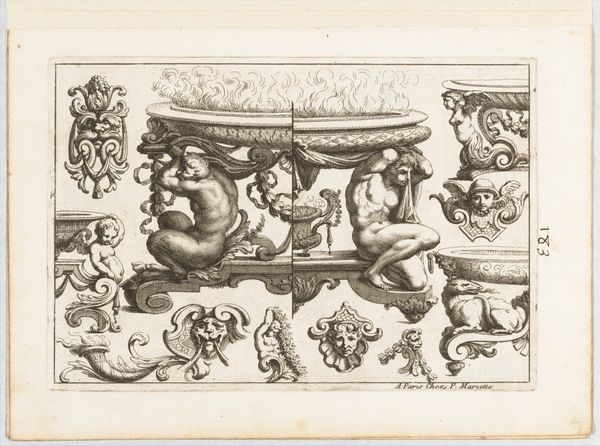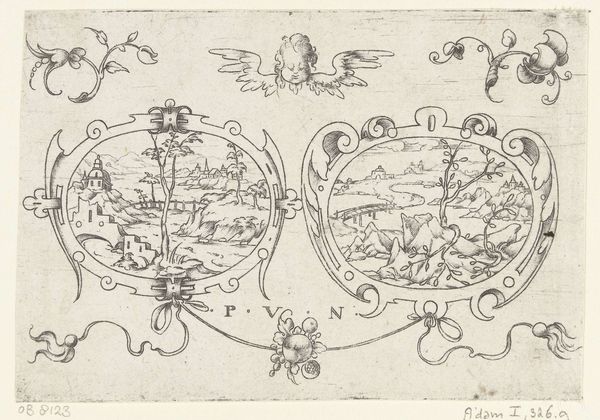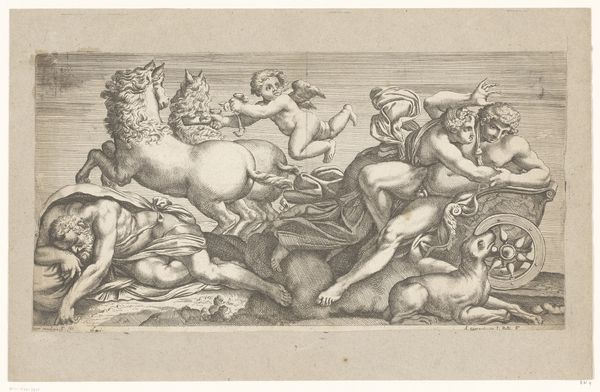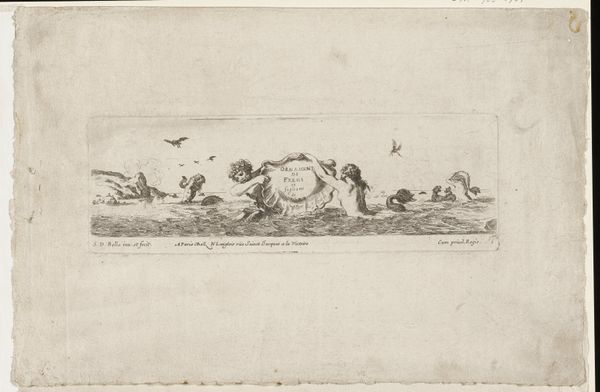
'Anno 1690' (the Year 1690), with numerous warring figures clambering on and hanging from the numbers, allusions to the Allegories of the Four Elements and the Four Continents 1685 - 1695
0:00
0:00
drawing, print, ink, engraving
#
drawing
#
allegory
#
baroque
#
pen drawing
# print
#
landscape
#
figuration
#
ink
#
history-painting
#
engraving
Dimensions: Plate: 8 1/8 × 12 5/16 in. (20.7 × 31.2 cm) Sheet: 9 9/16 × 13 11/16 in. (24.3 × 34.8 cm)
Copyright: Public Domain
Curator: This print, made between 1685 and 1695 by Giuseppe Maria Mitelli, is called 'Anno 1690,' and depicts the year 1690 with warring figures amidst allusions to the four elements and continents. Editor: My initial impression is one of utter chaos. The composition feels incredibly busy, with countless figures intertwined with these strange, monumental numbers. Curator: The sheer density mirrors the political and social upheavals of the era. Think of the numerous conflicts that shaped the late 17th century; this print becomes a commentary on the state of constant warfare. The choice of engraving seems deliberate, providing this sharp, replicable message. Editor: I’m interested in Mitelli's process. The engraved lines appear so precise, almost mechanical in their execution, but they still create this vibrant scene. How did his workshop function? Was there a division of labor in the creation of this image? Curator: The personification of the continents offers a fascinating lens through which to view early global power dynamics. Consider how Europe, often placed at the top in such allegories, positions itself as dominant. These aren’t simply representations; they’re assertions of power, influencing the socio-political narratives of the time. Editor: Exactly, and look at the cannons placed under America and Africa! We see how technological advancements in weaponry shaped colonial endeavors. It all speaks to this very real material advantage wielded by Europe in the exploitation of resources. Curator: Precisely! It urges us to confront uncomfortable historical realities about exploitation. It highlights how the control and representation of resources are intertwined with power. Editor: Examining 'Anno 1690' from a materialist perspective reveals a great deal about production processes of the era and reminds us that behind every artwork is real labor, resources, and intention. Curator: From a contextual standpoint, the artwork reveals 17th century perspectives on globalization and serves as a stark visual reminder about the power structures embedded within artistic representations and historical narratives.
Comments
No comments
Be the first to comment and join the conversation on the ultimate creative platform.
